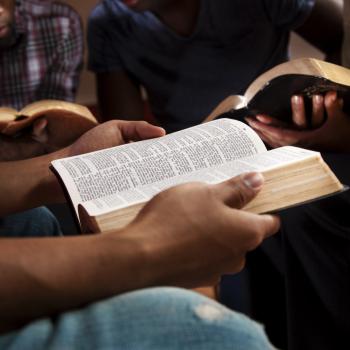In the effort to not have a compartmentalized life, and to have a spirituality and a theology which is fully integrated into every aspect of one's life-an aim of a great deal of modern Pagan religious movements-I would suggest that queer theology should be the norm more than the exception wherever there are queer Pagans, or queer-accepting Pagans. Queer people cannot be second-class citizens within modern Pagan religions that truly do value the diversity of nature, and pluralism in general. Any system of "natural law" or any sense of "nature" that truly looks to the actual conditions of nature for guidance, must take into account the very widespread occurrence of homoerotic and gender-variant behavior observable in non-human animals, particularly in the more intelligent and social mammalian species. (I'd highly suggest Bruce Bagemihl's book Biological Exuberance: Animal Homosexuality and Natural Diversity to anyone who remains unconvinced of these facts!)
Praxis-based theologies, I would argue, are the only theologies appropriate to modern Pagan religions. The assumption in them is that their starting-point is the experiences and practices of the people involved, and the inherent valuing of these in terms of making theological decisions. The modern Pagan religions-and for that matter, animistic and polytheistic religions worldwide and throughout history-do tend to be religions in which practice, conduct, and experience are more highly valued and are more essential than in the creedal monotheistic religions. Thus, any praxis-based theology, whether queer theology (or any division within it, e.g. lesbian theology, gay theology, bisexual theology, trans theology, intersex theology, etc.), feminist theology, disability theology, liberation theology, or even things that seem more commonplace (e.g. parental theology, middle class theology, etc.), should be based in the practices and experiences of the people involved rather than in some sort of "top-down" institutional or traditional theological authoritarian structure or methodology. The campaigning for the rights of Pagans in prison by Patrick McCollum and others in recent years is important; but what, for example, would "prison theology" look like as a praxis-based theology? I think it is important to ask such questions.
This praxis-based theological method would have the added bonus of requiring each generation, and even each individual, to re-define theology for themselves, from the ground of their own lives and experiences upwards, rather than having a theological tradition handed to them in toto with the simple expectation of carrying it onwards unquestioningly.
So, queer theology may be something which will primarily interest queer modern Pagan religious practitioners, but it should have some impact on all modern Pagan practitioners who socially value queer people. And, the praxis-based methodology of queer theology is something that can be expanded to many other areas of interest and types of life that are experienced amongst modern Pagan practitioners. Indeed, I would suggest that it is vital for all modern Pagans to take praxis-based theological methods as at the very heart of their own spiritual engagements.





